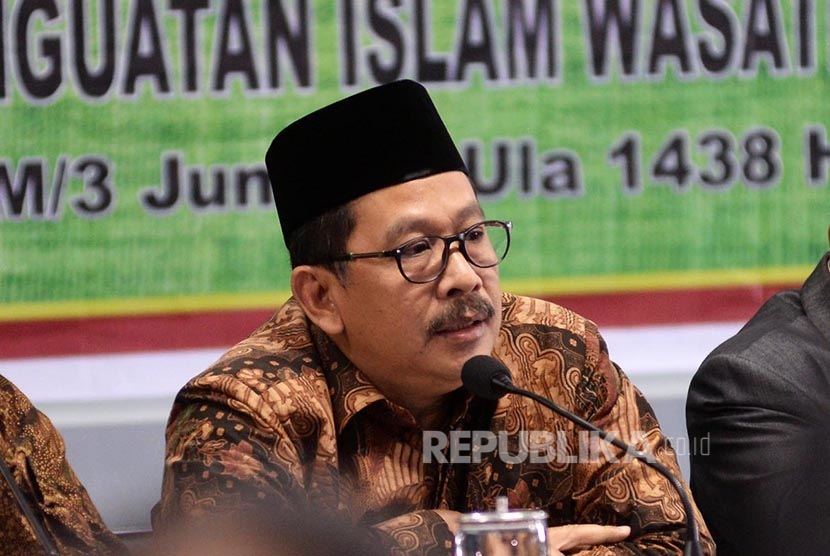REPUBLIKA.CO.ID, JAKARTA -- Indonesian Ulemas Council (MUI) Deputy Chairman Zainut Tauhid Saadi has expressed regret over the statement by the Association of Churches in Jayapura District (PGGJ) rejecting the construction of mosques which are taller than other buildings. In its statement, PGGJ has also rejected the use of loudspeakers for adzan (call to prayer) and the construction of mushollas (praying rooms) and mosques at public facilities.
PGGJ has also banned female students of state schools from wearing religious attire and preachers from conducting Islamic propagation in Jayapura district. "MUI regrets the statement as it goes beyond the spirit of brotherhood, tolerance, togetherness, and kinship, Zainut stated here on Tuesday.
The statement may threaten the unity and cohesion of the Indonesian people who live together in the Unitary State of the Republic of Indonesia based on the state ideology Pancasila and the 1945 Constitution, Saadi added.
The Indonesian independence was the fruit of the nation's joint efforts. Therefore, no group of people could claim to be more entitled or special than the others, because the claim could ruin and hurt the values of national brotherhood, which must be highly respected and upheld, he remarked.
"MUI is of the view that unity in diversity is God's mercy that we must thank rather than deny. It is our obligation to guard and preserve it by co-existing peacefully, lending mutual help, and working together to develop Indonesia into an independent, united, sovereign, just, and prosperous nation," Saadi explained.
Adhering to a religion is the most intrinsic order from God, and every citizen has the freedom to adhere to a religion and perform religious services according to his religion or faith, he noted.
No individual or group of individuals could ban other people from exercising their religious teachings, because the act is against the constitution and human rights, he pointed out.
MUI invited all parties, especially local religious figures, to sit together, dialogue, and build communication from heart to heart to find solutions to create a life of harmony and true brotherhood. "We believe that through the motto of Jayapura district of Khena Mbay Umbay (one cheerful heart of work to achieve glory) can be achieved with a dignified and dignified solution in Tanah Papua," he said.


